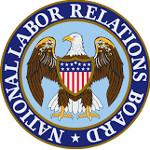Mueller’s Assurances That Trump is Not a ‘Target’ Don’t Mean Much
The recent assurance that President Trump is not officially a target n Robert Mueller’s investigation may not be worth much, reports Politico. Mueller may not be able to secure an indictment against a sitting president, but his report could serve as a trigger to impeachment proceedings.
Reporter Josh Gerstein interviewed lawyers who told him that it’s more significant that Mueller reportedly plans to writes a report about Trump’s potential obstruction of justice in the probe.
“The key isn’t that Trump is not (yet) a ‘target’ but that he IS a SUBJECT of Mueller’s investigation & that Mueller will write a REPORT on what Trump did, why, and what it adds up to. That is HUGE,” Harvard Law Professor Laurence Tribe wrote on Twitter.








